Pet Loss Information
The death of a pet can be one of the most difficult events a person has to cope with. The pet is often a companion and a part of the household. In fact, an entire lifestyle may have evolved around the pet, especially if it has required extensive care and monitoring over its lifetime.
Grieving over a loss is an entirely normal process. The human-animal bond can be as strong as bonding between people. The depth and intensity of the grieving process will vary with the individual. It will depend on the events and circumstances surrounding the loss, the type and degree of bonding to the pet, and the individual's own experience and state of mind when the loss occurs.
Grief can be defined as "keen mental suffering or distress over affliction or loss; sharp sorrow; painful regret." Several universal reactions and phases are often observed during the grieving process.
Sorrow and denial are often the first reactions to a pet's death, or the announcement of a terminal illness. It may take hours or days to adjust to the reality and nature of the situation. Feelings of disorientation and distraction are common and are usually short-lived.
Anger and guilt are also very common reactions to death and dying. In this age of modern medicine and technology it is hard to accept that even with such advances, animals do die. Accidents and unforeseen events occur, and we cannot "pad the world's corners" to prevent every possible problem. These emotions may be expressed towards family members or the veterinary clinic, or they may be turned inward towards ourselves.
Feelings of depression and a sense of loss are also very normal. These feelings may be constant, or may come in waves that are triggered by reminders of events with a pet. Crying and reflections on the past are very common responses during these stages. The death of a pet may also mean a change in habits and lifestyle because the pet is no longer there. These changes may serve as reminders themselves simply because they are new and different.
Acceptance and resolution is the final stage. It is common to still feel an acute sense of grief at this time. Eventually, the focus will be more on memories of the past that center on the love and companionship of the pet rather than on the sense of separation.
Thoughts of the pet no longer dominate day to day life but are shifted to the background. Acceptance of a pet's death is essential for people to enable them to continue with their daily lives. The resolution of a loss also prevents owners from superimposing unrealistic traits and demands on new pets.
Children have special needs at the time of the death of a pet. Feelings of loss, grief, and bereavement may be new and frightening to a child. These feelings and the way they are handled may determine a child's future reactions to death and the process of dying. It is essential to be supportive and to explain as accurately as possible what is happening. This is an opportunity to promote growth and understanding.
Perhaps one of the most difficult aspects of pet loss is admitting grief for one's pet. Society in general does not acknowledge death or the process of dying in an open manner. Traditionally grief has been a most private matter, even in human relationships. Thus, grief over a pet is a seldom recognized and frequently misunderstood reaction. It is not uncommon for people to feel alone and isolated at this time.
It is important to seek out people who are most supportive of your needs during the grieving process. It is helpful to simply recognize that other people feel the same way. The most commonly consulted people are often close friends of the grieving person. They may also have experienced a loss, or have established firm bonds with their pets. They understand the grief felt at the loss of a pet.
Excerpted from "Pet Loss and Owner Grief", written by Dr. Carrie Burhenn, used by permission.
We have a Quality of Life handout that we can mail to you. It discusses signs for you to watch for when you feel the end is near, but you are unsure if it is the right time to make the final decision. When the number of bad days your cat has outnumbers the number of good, your cat's quality of life may be compromised. Please call us if you would like to have a handout mailed to you, or if you would like to speak to a doctor regarding your concerns.
The Feline Medical Clinic offers humane euthanasia. If you would like to bury your cat at home, we can provide a burial box. We also use Petland cremation services. You may choose to have private cremation (with ashes returned), or group cremation (without ashes returned). Please ask if you have any questions.
After your cat has passed, if you feel you would like to talk to someone, these organizations offer Pet Loss Support:
- Dove Lewis Animal Hospital holds a Pet Loss Support Group free of charge. To learn more: Dove Lewis Pet Loss Support Group
We also have a small library of books dealing with pet loss, if you would like to borrow one or more, please let us know.
